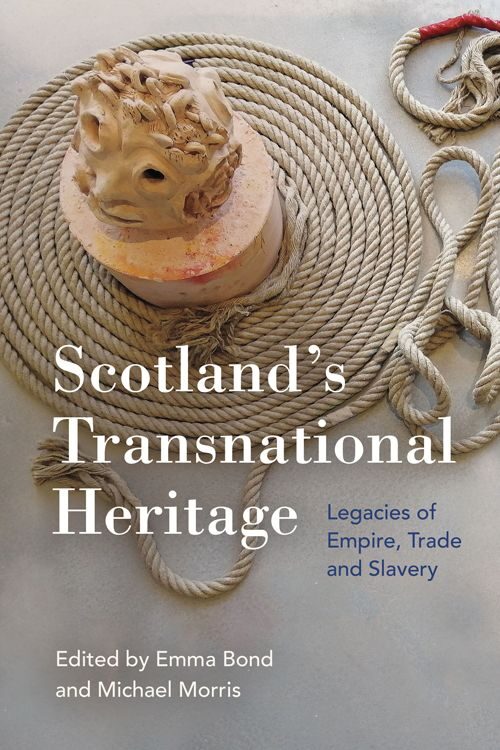A RESEARCHER from the University of Dundee has produced a new book exploring how to tell Scotland’s history in the context of calls to decolonise institutions and curricula.
Scotland’s Transnational Heritage: Legacies of Empire and Slavery offers new ways of reading the legacies of slavery and empire in Scottish heritage sites and museums as well as teaching the country’s history.
The book is co-edited by Dr Michael Morris, from Dundee’s School of Humanities, Social Sciences and Law, and his colleague Dr Emma Bond, from the University of Oxford.

It gathers essays from contributors offering a variety of perspectives on how Scotland’s role in colonialism should be shared and discussed.
Scotland’s Transnational Heritage draws on the expertise of academics, museum professionals and creative practitioners to inspire new approaches to these histories, both in Scotland and beyond.
By outlining the legacies of empire in Scotland, the authors offer practical methods for diversifying the stories we tell about Scotland’s history.
Collectively, the authors emphasise Scotland’s role in empire and colonialism, outline new evidence of how its trades and institutions benefitted from empire, and offer innovative examples of new methods for telling transnational heritage stories.
The book also provides examples of new creative practices that illuminate Scotland’s role in the transatlantic slave system.
Dr Morris said: “Scotland was an active agent in networks of empire and colonialism, and it is important to consider how to tell these stories.
“We hope readers will take away the idea that there is no one single national history, and that national histories are not fixed in any particular time or space.
“We can always intervene to produce and articulate new understandings of history, based on the emergence of new evidence and on contemporary advances in scholarly thought.
“It was important for us to have a practical slant, and for the book to be of use to people who might be looking for innovative ideas and methods of telling history in engaging ways.
“To that end, we have included case studies from researchers who use sensory methods, digital storytelling, and various modes of artistic practice to tell these stories.”
Dr Morris is Senior Lecturer at the University and researches the historical and cultural legacies of slavery.
He was Co-Investigator of the ‘Transnational Scotland’ network (2019–20), out of which the new book grew.
The network involved several key museums and heritage sites in Scotland, including the Watt Institution, New Lanark, Verdant Works, V&A Dundee and Anstruther Fisheries Museum.
The project allowed Dr Bond and Dr Morris to build connections with other scholars and practitioners in the field, and to familiarise themselves with museum collections across the country.
The book builds on work going back decades by multiple individuals and organisations to try and rethink the way that Scotland’s history is told.
It also raises awareness of the legacies of empire and slavery that underpin so much of our cultural, economic and social heritage.
Scotland’s Transnational Heritage was launched at an event at V&A Dundee last week when Curator Meredith More led a tour of the Scottish Design Gallery, highlighting artefacts that are now presented differently as well plans for future changes.
This was followed by a roundtable discussion on the subjects covered in the book at the University.
More information about the book is available at https://edinburghuniversitypress.com/book-scotland-s-transnational-heritage.html
